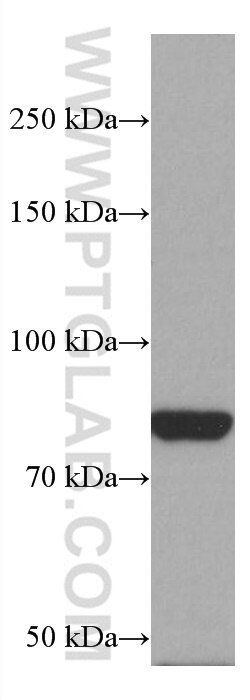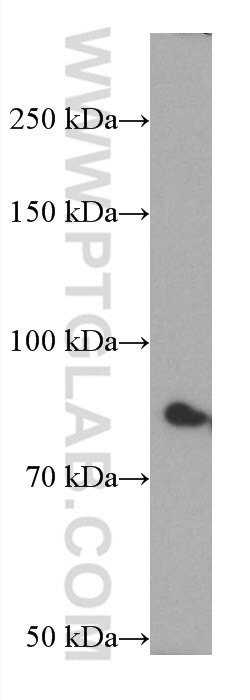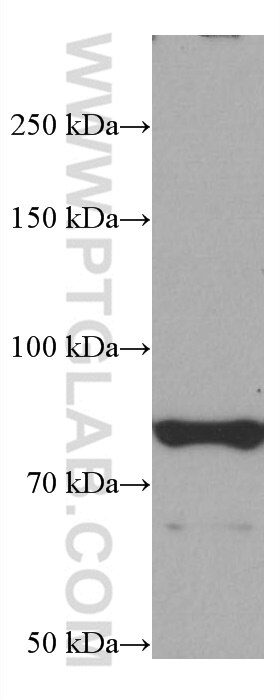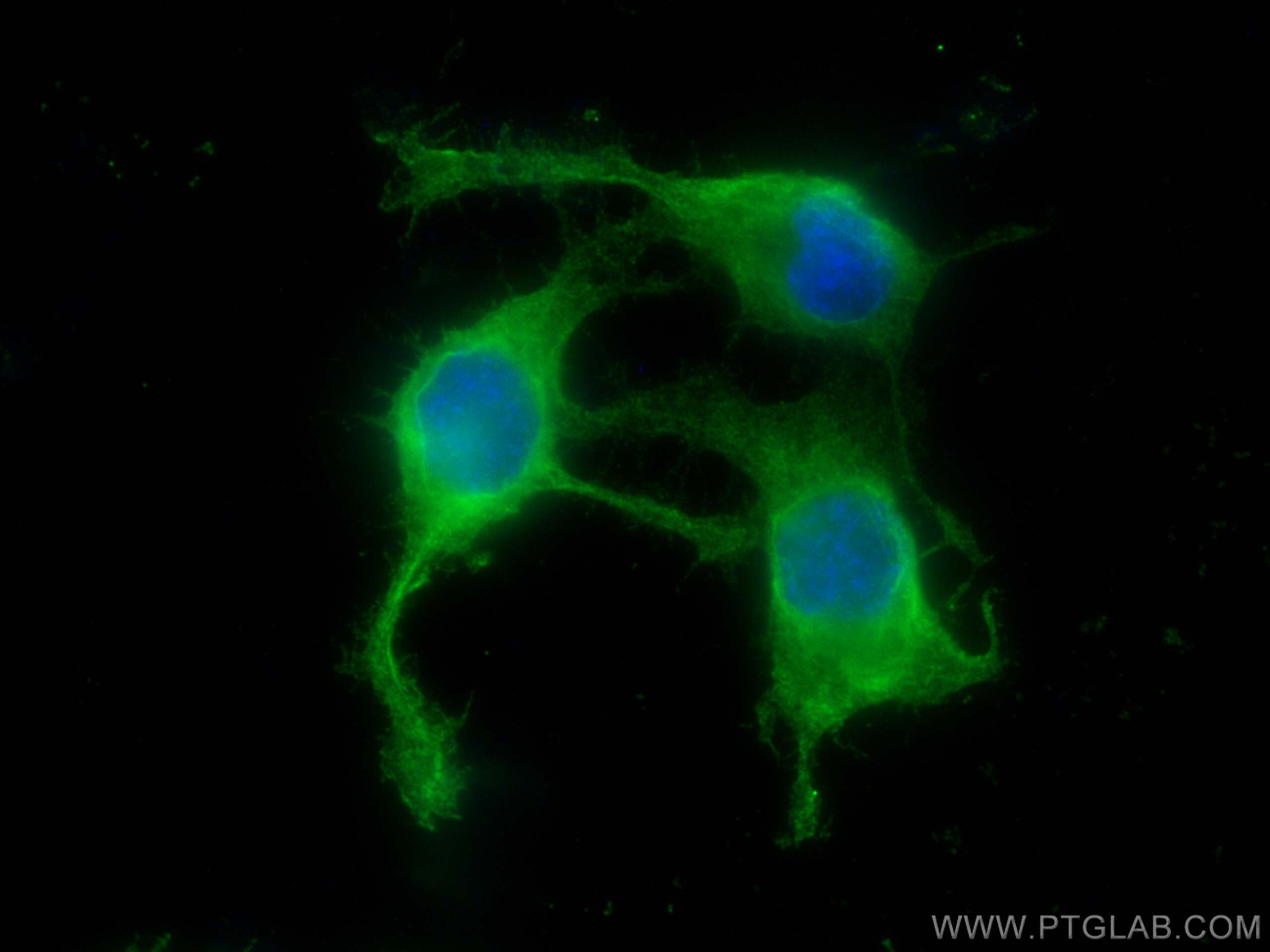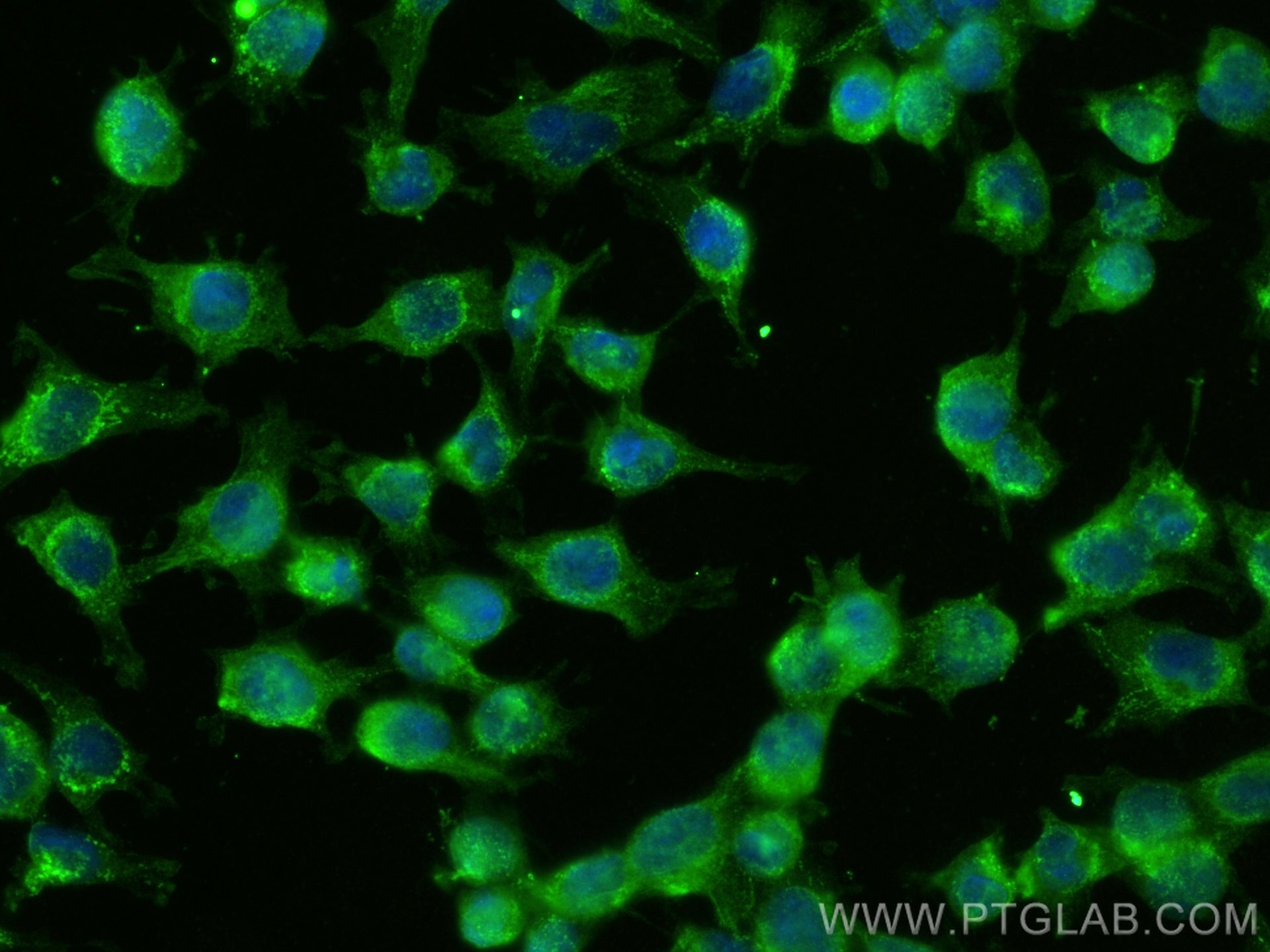Tested Applications
| Positive WB detected in | mouse brain tissue, pig brain tissue, rat brain tissue |
| Positive IF/ICC detected in | Neuro-2a cells, U-251 cells |
Recommended dilution
| Application | Dilution |
|---|---|
| Western Blot (WB) | WB : 1:1000-1:6000 |
| Immunofluorescence (IF)/ICC | IF/ICC : 1:400-1:1600 |
| It is recommended that this reagent should be titrated in each testing system to obtain optimal results. | |
| Sample-dependent, Check data in validation data gallery. | |
Product Information
66961-1-Ig targets PAK7 in WB, IF, ELISA applications and shows reactivity with Human, Mouse, Rat, Pig samples.
| Tested Reactivity | Human, Mouse, Rat, Pig |
| Host / Isotype | Mouse / IgG1 |
| Class | Monoclonal |
| Type | Antibody |
| Immunogen |
CatNo: Ag27299 Product name: Recombinant human PAK7 protein Source: e coli.-derived, PET28a Tag: 6*His Domain: 1-200 aa of BC024179 Sequence: MFGKKKKKIEISGPSNFEHRVHTGFDPQEQKFTGLPQQWHSLLADTANRPKPMVDPSCITPIQLAPMKTIVRGNKPCKETSINGLLEDFDNISVTRSNSLRKESPPTPDQGASSHGPGHAEENGFITFSQYSSESDTTADYTTEKYREKSLYGDDLDPYYRGSHAAKQNGHVMKMKHGEAYYSEVKPLKSDFARFSADYH Predict reactive species |
| Full Name | p21 protein (Cdc42/Rac)-activated kinase 7 |
| Calculated Molecular Weight | 719 aa, 81 kDa |
| Observed Molecular Weight | 80 kDa |
| GenBank Accession Number | BC024179 |
| Gene Symbol | PAK7 |
| Gene ID (NCBI) | 57144 |
| RRID | AB_2882284 |
| Conjugate | Unconjugated |
| Form | Liquid |
| Purification Method | Protein G purification |
| UNIPROT ID | Q9P286 |
| Storage Buffer | PBS with 0.02% sodium azide and 50% glycerol, pH 7.3. |
| Storage Conditions | Store at -20°C. Stable for one year after shipment. Aliquoting is unnecessary for -20oC storage. 20ul sizes contain 0.1% BSA. |
Background Information
PAK7(p21-activated kinase 7) is also named as KIAA1264, PAK5 and belongs to the STE Ser/Thr protein kinase family. It plays a role in a variety of different signaling pathways including cytoskeleton regulation, cell migration, proliferation or cell survival.

